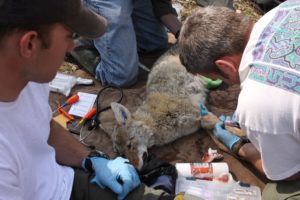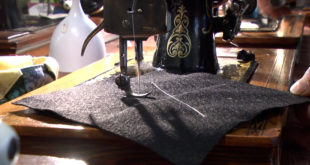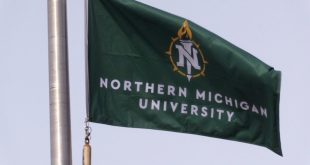The Michigan Department of Natural Resources recently launched a project designed to demonstrate to private landowners that they can accomplish their wildlife habitat enhancement goals and objectives by careful implementation of a well-written resource management plan.
As part of this effort – using funding from a Natural Resources Conservation Service grant – the DNR will offer “Wildlife Through Forestry” forums in the western Upper Peninsula over the next few months.

Each of these forums will include a presentation on an interesting and important wildlife- related topic, with additional information provided to private landowners on the value of a resource management plan.
The first forum will be from 6 to 8 p.m. EST March 8 at the Ewen-Trout Creek School, which is located just west of Ewen, along Highway M-28, in Ontonagon County.
“This fascinating series of presentations and panel discussions will provide great opportunities for the public to talk with resource professionals, and learn about important wildlife research,” said DNR service forester Gary Willis. “Over the course of these forums, there will also be information presented on management of forest and wildlife resources, including funding, development and implementation of resource management plans for private landowners.”
The March 8 event is being sponsored by the Ontonagon Valley Sportsmen’s Club and will feature a presentation on the long-term Upper Peninsula Predator-Prey study that is currently ongoing in Ontonagon and Houghton Counties.
This study is a collaborative effort between the DNR, Mississippi State University and Safari Club International. The project aims to provide a better understanding of the major factors affecting white-tailed deer survival.
Factors potentially affecting deer include habitat conditions, winter weather and predation. Understanding the role and interaction of these factors will aid management of the deer herd.
Two members of the research team, Nick Fowler and Todd Kautz, both doctoral candidates at Mississippi State, will describe the study and review some of its preliminary findings.
A panel of resource professionals from the DNR, U.S. Forest Service and the Ontonagon-Gogebic Conservation District will be on hand to discuss the development of resource management plans, and available financial assistance for their preparation and implementation.
The DNR “Wildlife Through Forestry” steering committee planned specific goals in holding these forums in the western U.P.
“We want to get folks fired up about sound resource management so that they establish a family legacy with their forest ownership,” Willis said. “We want to show folks the importance of working closely with a resource professional to accomplish their goals and objectives for ownership. We also want folks to have a good time getting together to discuss topics of interest to us all.”
Additional forums scheduled in the series so far will be offered April 18 in Houghton and a forum sponsored by the Ottawa Sportsmen’s Club May 8 in Baraga County.
More than 150 professional foresters and 20 wildlife biologists develop Forest Stewardship Plans for forest landowners in Michigan. For information about these plans or the Commercial Forest Program, contact Gary Willis, DNR Service Forester, 427 U.S. 41 North, Baraga, Michigan, 49908; 906-353-6651, ext. 122 orwillisg2@michigan.gov.
The Ontonagon-Gogebic Conservation District has a forester on staff available for a free site visit to private landowner properties. Winona Genther can discuss landowner wildlife habitat and forestry goals and help decide if there are financial assistance programs that can provide cost sharing for resource management plan preparation and implementation. Contact Genther at 906-667-1100, ext. 632 orwinona.genther@macd.org.
For additional information on the Predator-Prey research project, visit the project’s webpage at: http://fwrc.msstate.edu/carnivore/predatorprey/.
 Keweenaw Report Your Source for Local News and Sports
Keweenaw Report Your Source for Local News and Sports





